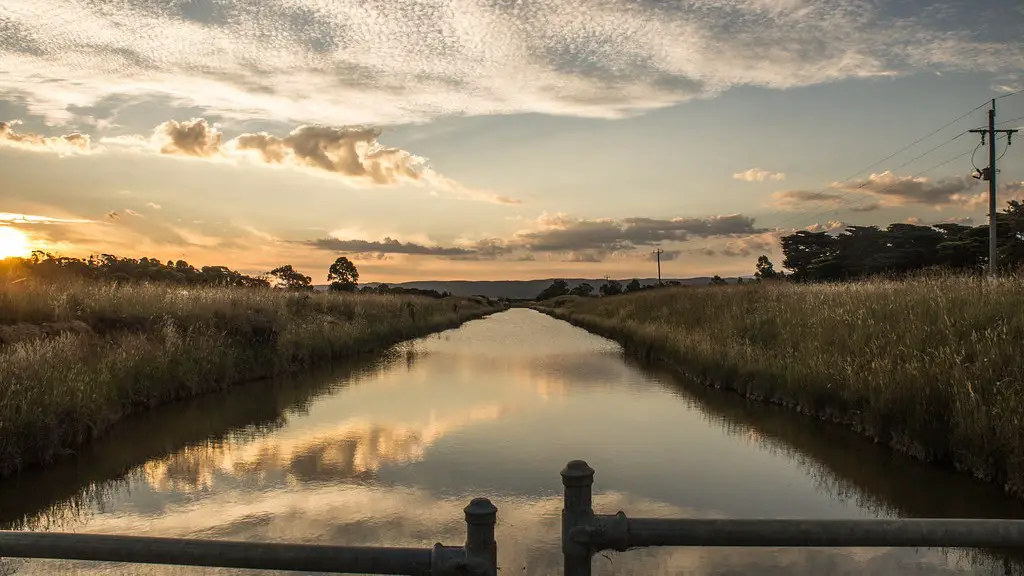Heavy metals, pharmaceuticals and other pollutants are being developed or are contained in many of the Mississippi River’s waters and tributaries. Over time, the pollutants accumulate in the river and its entire watershed, including sites downstream, endangering not only the environment but also the health of many people who use the river and its tributaries. What is typically finding in the Mississippi River? What opportunities do these chemicals and pollutants present? Further, what is being done to help individuals and the environment living around the Mississippi River?
The Upper Mississippi River Basin is an important water source for many states. It is also home to major factories, urban areas and agricultural areas. The run-off from these sources introduces a variety of pollutants into the river and tributaries. In many studies, nitrates and phosphates were found to be the major pollutants in the river. Nitrates and phosphates can cause eutrophication, which is an increase in the nutrient content of the water, leading to increased algal blooms that block out sunlight and contaminate the water. Additionally, heavy metals, such as cadmium, chromium, and lead, have been found in the river from years of human and industry activity in the area.
Furthermore, pharmaceuticals and other chemicals have been found in the Mississippi River. Pharmaceuticals are substances, primarily used for clinical purposes, that are present in many common, daily products such as in washing detergents, cleaning products, and cosmetics. These chemicals have been found to have an adverse effect on aquatic life. Fish and other aquatic organisms take up these chemicals, which accumulate in their bodies and result in adverse health effects.
The water quality and health of the Mississippi River has become an increasingly important focus in recent years. Many researchers, researchers from government, business and non-profit organizations are deeply invested in trying to mitigate the damage from the pollutants. Many of these organizations have undertaken numerous initiatives to reduce the amount of pollutants entering the river. For example, organizations have focused on restoring wetlands and prairies, reducing runoff from urban and agricultural areas, and promoting the use of natural practices such as green stormwater infrastructure. Additionally, there is an emphasis on public education around the impacts of pollution.
The research and initiatives around mitigating the impact of pollutants in the Mississippi River illustrate the importance of sustainable practices. There are many opportunities to reduce the amount of pollution that enters the river and its tributaries. Further research and education will be needed to ensure that sustainable practices are achieved.
Effects of Pollution on Wildlife
The Mississippi River is home to a diverse range of species. The pollutants in the river can have devastating impacts on these species, including on the birds, reptiles, mammals and fish that rely on the river as their home and source of food. The heavy metals, pharmaceuticals and other pollutants can have a significant impact on the health of the species via increased mortality, deformities, decreased reproduction, and other health effects. Additionally, the pollutants can make the species more susceptible to disease, which can cause significant population declines.
Fisheries in the Mississippi River are especially vulnerable to the pollutants. Fish are particularly prone to absorbing metals and other pollutants from the river water. When those pollutants accumulate in fish flesh, they can cause illness in humans when they eat the fish. It is also important to note that many species of fish, such as catfish, paddlefish, and sturgeon, migrate between the different tributaries and parts of the river and can take the pollutants with it.
A further consequence of the pollutants in the Mississippi River is that they may accumulate in food webs and cause a cascade of effects to these species. For example, if the primary species that a predator depends on to eat is contaminated with the pollutants, then the predator will be unable to receive the nutrition it needs, resulting in a decline or disappearance of the species. This can have profound impacts on a region’s entire biological community.
In order to protect the species in the Mississippi River, it is important for industry and individuals to use sustainable practices and for governments to enact policies that promote sustainable energy sources, reduce runoff from urban and agricultural areas, and make sure their factories are properly regulated.
Impact on the economy
The Mississippi River is an important economic resource for the region, with its fishing and recreational industries providing many jobs and supporting the communities in the river’s basin. Pollution in the river can significantly damage these industries. For example, if fish populations decline due to the pollution, then there will be fewer fish to catch and therefore fewer jobs available. Additionally, if there is an increase in algal blooms due to the nutrients in the river, then recreational activities such as boating and swimming may be hazardous and contribute to the decline in the number of people visiting the area.
The impacts of pollution can also extend to other areas of the local economy. For example, tourism and real estate in areas near the river can be affected, as people may be reluctant to move to or visit areas where there is a lot of pollution. These effects are of particular concern, as these areas are often economically fragile and require people’s support and investment to survive.
In order to protect the local economies that are dependent on the Mississippi River, governments and individuals must work together to reduce the amount of pollution entering the river. This could include implementing and enforcing regulations that limit the discharge of pollutants, investing in green energy sources, and increasing public awareness about the impacts of pollution.
Environmental Impacts
The consequences of the pollutants in the Mississippi River can extend far beyond the species and humans who rely on it. Polluted water can spread downstream and enter other water systems, impacting habitats and species that are not local to the Mississippi River. Pollutants can also seep into the soil and groundwater and enter crops, which can be a health hazard to humans and other species alike.
In order to minimize the environmental impacts of pollutants in the Mississippi River, there are a variety of initiatives that have been implemented and are being proposed. These include investing in sustainable sources of energy, reducing runoff from urban and agricultural areas, and creating green stormwater infrastructure. Additionally, research and awareness-raising initiatives have been taken up to ensure that individuals, governments, and industries are informed about the consequences of their actions.
In summary, there are many pollutants and chemicals entering the Mississippi River and its tributaries, and this has profound effects on the environment, the species, humans, and the economy of the region. Reducing the amount of pollutants entering the river, and investing in sustainable sources of energy and infrastructure will be key in ensuring the health of the river and those that rely on it.
Population Impact
The Mississippi River is home to many communities who rely on it for their wellbeing. The pollutants in the river can have serious negative impacts on these individuals and communities, and can lead to illness and reduced quality of life. The accumulation of heavy metals, pharmaceuticals and other pollutants can cause a variety of illnesses for those who are exposed to it. This is particularly concerning for vulnerable populations, such as children, who are more likely to suffer from the effects of pollutants.
In order to ensure the wellbeing of these populations, measures must be taken to mitigate the impact of pollution in the Mississippi River. Educating individuals about the risks associated with pollutants and investing in green infrastructure are two initiatives that have been proposed to reduce the impact of the pollutants. Additionally, research has been undertaken to understand the health impacts of these pollutants, and how to best protect the communities in the river’s basin.
The health of the Mississippi River and its tributaries is of paramount importance to the individuals and communities who rely on them. Reducing the amount of pollutants that enter the river, and investing in sustainable energy and infrastructure will be essential in ensuring a healthy future for the river and its inhabitants.
Economic Implications
The Mississippi River provides many economic benefits for the communities surrounding it and for the nation as a whole. The river’s watershed is home to many agricultural and fishing industries, as well as a source of recreation for many people. However, the pollutants that are finding their way into the river can have serious implications for the economy of the region.
Pollutants can penetrate the soil and groundwater, and find their way into crops. This can reduce the yields of those crops, putting agricultural businesses and the local economy in peril. Heavy metals, pharmaceuticals and organic pollutants can also be taken up by fish, and humans who eat those fish could be at risk of food poisoning and other illnesses. This can cause a decline in tourism, as well as industries that rely on people visiting and fishing in the river.
In order to protect the economy of the Mississippi River basin, governments and industry must work together to reduce the amount of pollutants entering the river. This could include investing in green energy sources, limiting emissions from factories, and reducing runoff from urban and agricultural areas. Additionally, research and education initiatives should be taken to ensure that individuals and industry actors understand the impacts of their activities.
The health of the Mississippi River is of vital importance for the economic wellbeing of the communities and individuals who rely on it. Reducing the pollutants that enter the river, and investing in sustainable energy sources and infrastructure, will be essential in ensuring its health and the economic prosperity of the region.





